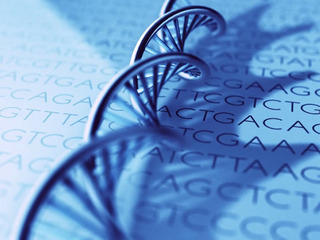Oxford Cancer Analytics raises $11M to detect lung cancer via a blood test
OXcan combines proteomics and artificial intelligence for early detection
Read more...
On September 27, Vator will be holding a salon, co-hosted and co-produced by our awesome partner, HP, where we take a deep dive into precision health.
Precision health is a relatively new term that encompasses the move toward tailored and personalized medicine vs a one-size-fits-all approach, but with the emphasis or inclusion of disease prevention and detection vs treatments.
It's an exciting space, one with a lot of opportunity for completely changing the way people are treated for all kinds of diseases and ailments, so it's not surprising that there's a lot of money going into this space.
According to the PwC/CB Healthcare Insights MoneyTree Report, there was $4 billion invested in biotechnology companies in the second quarter of 2018. While that number decreased by 3 percent quarter-to-quarter, the number of deals rose 12 percent to 115.
That $4 billion represents 75 percent of the $5.3 billion invested in the U.S. healthcare space. Those 115 deals represented 60 percent of the 191 during Q2. That $5.3 billion includes wellness and analytics companies, but not health insurance companies.
The report broke down investments in biotechnology into subcategories, with the largest being companies simply described simply as “biotechnology," which PwC defines as "the use of biological processes, organisms, or systems to manufacture products intended to improve the quality of human life." Those companies raised $2.1 billion in 68 deals, or 52 percent of funding and 35 percent of deals.
The other $1.9 billion was raised by industries related to biotech, including disease diagnosis, drug development, drug delivery, drug discovery, drug manufacturing, and pharmaceuticals.
Drug development companies raised $1.277 billion, or 30.6 percent of total funding, in 29 deals, followed by disease diagnosis, which raised $324.4 million or 8 percent of funding, in four deals.
Beyond the biotech category, companies in the medical devices and equipment industries raised $740 million during the quarter; that includes device design and manufacturing, imaging and diagnostic equipment, other medical devices, patient monitoring, prosthetics, surgical devices, and therapeutic devices.
The third largest category is known as "other healthcare" and includes home healthcare, medical laboratories and research, medical practice management and services, and specialized healthcare services. Companies in this category raised $500 million.
Largest Q2 biotech fundings
Of the biggest deals during the quarter, a large number of them were in the biotechnology sector.
In fact, that includes the two biggest deals of all: the $300 million raised by Allogene Therapeutics in April and the $300 million raised by GRAIL, a cancer detection company, in May.
Allogene Therapeutics says its mission is "to catalyze the next revolution in cancer treatment through the development of allogeneic chimeric antigen receptor T-cell (CAR T) therapy directed at blood cancers and solid tumors."The funding came from an investment consortium that included TPG, Vida Ventures, BellCo Capital, the University of California Office of the Chief Investment Officer and Pfizer, among others.
GRAIL's round was led by Ally Bridge Group, co-led by Hillhouse Capital Group and 6 Dimensions Capital, and includes Blue Pool Capital, China Merchant Securities International, CRF Investment, HuangPu River Capital, ICBC International, Sequoia Capital China, and WuXi NextCODE.
Those two deals were followed by Briii BioSciences, which "aims to accelerate the development and delivery of breakthrough medicines in China." It raised $260 million led by ARCH Venture Partners, 6 Dimensions Capital, Boyu Capital, Yunfeng Capital, Sequoia Capital, and Blue Pool Capital.
There was also the $110 million raised by Precision BioSciences, a provider of a genome editing platform. That round was led by ArrowMark Partners along with new investors Franklin Templeton Investments, Cowen Healthcare Investments, Brace Pharma Capital, Pontifax AgTech, OCV Partners, Adage Capital Management, Cormorant Asset Management, Gilead Sciences, Vivo Capital, Alexandria Venture Investments, Ridgeback Capital, Agent Capital, and entities affiliated with Leerink Partners. Existing investors venBio, F-Prime, RA Capital Management, Amgen Ventures, Osage University Partners, DUMAC, and the Longevity Fund also participated in the financing.
Finally, there was the $101 million raised by Kaleido Biosciences, "a clinical-stage healthcare company leading the discovery and development of novel chemistries to drive functions of the microbiome organ to treat disease and improve human health."
The funding came from new investors,including a wholly-owned subsidiary of the Abu Dhabi Investment Authority (ADIA), Fidelity Management and Research Company, Invus, and Rock Springs Capital, along with Kaleido’s founder, Flagship Pioneering, and a number of undisclosed investors.
(Image source: biotech.pall.com)
OXcan combines proteomics and artificial intelligence for early detection
Read more...Nearly $265B in claims are denied every year because of the way they're coded
Read more...Most expect to see revenue rise, while also embracing technologies like generative AI
Read more...


